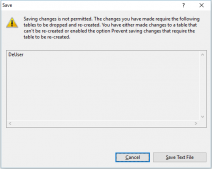#{} 和 ${} 的区别
#{} 匹配的是一个占位符,相当于 JDBC 中的一个?,会对一些敏感字符进行过滤,编译过后会对传递的值加上双引号,因此可以防止 SQL 注入问题。
${} 匹配的是真实传递的值,传递过后,会与 SQL 语句进行字符串拼接。${} 会与其他 SQL 进行字符串拼接,无法防止 SQL 注入问题。
|
1
2
3
4
5
6
7
8
|
<mapper namespace="com.gitee.shiayanga.mybatis.wildcard.dao.UserDao"> <select id="findByUsername" resultType="com.gitee.shiayanga.mybatis.wildcard.entity.User" parameterType="string"> select * from user where username like #{userName} </select> <select id="findByUsername2" resultType="com.gitee.shiayanga.mybatis.wildcard.entity.User" parameterType="string"> select * from user where username like '%${userName}%' </select></mapper> |
|
1
2
3
4
5
6
|
==> Preparing: select * from user where username like ?==> Parameters: '%小%' or 1=1 --(String)<== Total: 0==> Preparing: select * from user where username like '%aaa' or 1=1 -- %'==> Parameters: <== Total: 4 |
#{} 底层是如何防止 SQL 注入的?
- #{} 底层采用的是 PreparedStatement,因此不会产生 SQL 注入问题
- #{} 不会产生字符串拼接,而 ${} 会产生字符串拼接
为什么能防止SQL注入?
以MySQL为例,#{} 使用的是 com.mysql.cj.ClientPreparedQueryBindings#setString 方法,在这里会对一些特殊字符进行处理:
|
1
2
3
4
5
6
7
8
9
10
11
12
13
14
15
16
17
18
19
20
21
22
23
24
25
26
27
28
29
30
31
32
33
34
35
36
37
38
39
40
41
42
43
44
45
46
47
48
49
50
51
52
53
54
55
56
57
58
59
60
61
62
63
64
65
66
67
68
69
70
71
72
73
74
75
76
77
78
79
80
81
82
83
84
85
86
87
88
89
90
91
92
93
94
95
96
97
98
99
100
101
102
103
104
105
106
107
108
109
110
|
public void setString(int parameterIndex, String x) { if (x == null) { setNull(parameterIndex); } else { int stringLength = x.length(); if (this.session.getServerSession().isNoBackslashEscapesSet()) { // Scan for any nasty chars boolean needsHexEscape = isEscapeNeededForString(x, stringLength); if (!needsHexEscape) { StringBuilder quotedString = new StringBuilder(x.length() + 2); quotedString.append('\''); quotedString.append(x); quotedString.append('\''); byte[] parameterAsBytes = this.isLoadDataQuery ? StringUtils.getBytes(quotedString.toString()) : StringUtils.getBytes(quotedString.toString(), this.charEncoding); setValue(parameterIndex, parameterAsBytes, MysqlType.VARCHAR); } else { byte[] parameterAsBytes = this.isLoadDataQuery ? StringUtils.getBytes(x) : StringUtils.getBytes(x, this.charEncoding); setBytes(parameterIndex, parameterAsBytes); } return; } String parameterAsString = x; boolean needsQuoted = true; if (this.isLoadDataQuery || isEscapeNeededForString(x, stringLength)) { needsQuoted = false; // saves an allocation later StringBuilder buf = new StringBuilder((int) (x.length() * 1.1)); buf.append('\''); // // Note: buf.append(char) is _faster_ than appending in blocks, because the block append requires a System.arraycopy().... go figure... // for (int i = 0; i < stringLength; ++i) { char c = x.charAt(i); switch (c) { case 0: /* Must be escaped for 'mysql' */ buf.append('\\'); buf.append('0'); break; case '\n': /* Must be escaped for logs */ buf.append('\\'); buf.append('n'); break; case '\r': buf.append('\\'); buf.append('r'); break; case '\\': buf.append('\\'); buf.append('\\'); break; case '\'': buf.append('\''); buf.append('\''); break; case '"': /* Better safe than sorry */ if (this.session.getServerSession().useAnsiQuotedIdentifiers()) { buf.append('\\'); } buf.append('"'); break; case '\032': /* This gives problems on Win32 */ buf.append('\\'); buf.append('Z'); break; case '\u00a5': case '\u20a9': // escape characters interpreted as backslash by mysql if (this.charsetEncoder != null) { CharBuffer cbuf = CharBuffer.allocate(1); ByteBuffer bbuf = ByteBuffer.allocate(1); cbuf.put(c); cbuf.position(0); this.charsetEncoder.encode(cbuf, bbuf, true); if (bbuf.get(0) == '\\') { buf.append('\\'); } } buf.append(c); break; default: buf.append(c); } } buf.append('\''); parameterAsString = buf.toString(); } byte[] parameterAsBytes = this.isLoadDataQuery ? StringUtils.getBytes(parameterAsString) : (needsQuoted ? StringUtils.getBytesWrapped(parameterAsString, '\'', '\'', this.charEncoding) : StringUtils.getBytes(parameterAsString, this.charEncoding)); setValue(parameterIndex, parameterAsBytes, MysqlType.VARCHAR); } } |
所以 '%小%' or 1=1 -- 经过处理之后就变成了 '''%小%'' or 1=1 --'
而 ${} 只是简单的拼接字符串,不做其他处理。
这样,它们就变成了:
|
1
2
3
4
5
|
-- %aaa' or 1=1 --select * from user where username like '%aaa' or 1=1 -- %'-- '%小%' or 1=1 --select * from user where username like '''%小%'' or 1=1 --' |
所以就避免了 SQL 注入的风险。
到此这篇关于浅谈为什么#{}可以防止SQL注入的文章就介绍到这了,更多相关#{}防止SQL注入内容请搜索服务器之家以前的文章或继续浏览下面的相关文章希望大家以后多多支持服务器之家!
原文链接:https://juejin.cn/post/7095247748126998535














